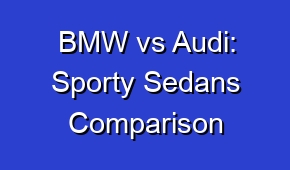Car Financing

Car financing allows individuals to purchase a vehicle by taking out a loan. This loan is typically repaid over a specified period, including interest. It provides an affordable way to own a car without making a large upfront payment.
Car financing is a crucial aspect of purchasing a vehicle, providing individuals with the opportunity to own a car without paying the full amount upfront. With car financing, buyers can enjoy the benefits of flexible payment options and affordable monthly installments. Whether it’s through a dealership or a financial institution, securing a loan allows individuals to spread out the cost of the car over a period of time. Car financing also gives buyers the chance to choose from various loan terms and interest rates that suit their financial situation. By properly understanding the terms and conditions of the loan, buyers can make informed decisions and find the best car financing option for their needs.
| Car financing options are available for individuals looking to purchase a vehicle. |
| Interest rates vary depending on the borrower’s credit score and the loan term. |
| Down payments are often required when financing a car. |
| Car financing allows you to spread the cost of a vehicle over time. |
| There are different types of car financing, such as personal loans and dealership financing. |
- Monthly payments are a common way to repay car loans.
- It is important to compare interest rates and terms before choosing a car financing option.
- Pre-approval for a car loan can help streamline the purchasing process.
- Defaulting on car loan payments can have negative consequences for your credit score.
- Leasing a car is an alternative to traditional car financing.
What is car financing and how does it work?
Car financing refers to the process of borrowing money to purchase a vehicle. A lender, such as a bank or credit union, provides the funds needed to buy the car, and the borrower agrees to repay the loan over a set period of time. Typically, the borrower pays back the loan in monthly installments, which include both the principal amount borrowed and interest charges.
Car financing allows individuals who may not have enough cash on hand to buy a car outright to still be able to afford a vehicle. It provides an opportunity to spread out the cost of the car over a longer period, making it more manageable for many people. However, it’s important to note that car financing involves paying interest, which adds to the total cost of the vehicle.
What are the different types of car financing?
There are several types of car financing options available to potential buyers. These include:
- Bank loans: Borrowing money from a bank or credit union to purchase a car.
- Dealership financing: Obtaining a loan directly from the car dealership.
- Leasing: Renting a car for a specific period with an option to buy at the end.
- Manufacturer financing: Financing offered by the car manufacturer or its subsidiary.
Each type of car financing has its own terms, interest rates, and eligibility criteria. It’s important to compare and consider these options before making a decision.
What factors should I consider when choosing a car financing option?
When selecting a car financing option, it’s crucial to consider the following factors:
- Interest rates: Compare the interest rates offered by different lenders to ensure you get the best deal.
- Loan term: Determine the duration of the loan and assess if it aligns with your financial goals.
- Monthly payments: Calculate the monthly payments and ensure they fit within your budget.
- Down payment: Evaluate the down payment required and assess if you can comfortably afford it.
- Additional fees: Be aware of any additional fees, such as origination fees or prepayment penalties.
Considering these factors will help you make an informed decision and choose the car financing option that best suits your needs.
What is the minimum credit score required for car financing?
The minimum credit score required for car financing varies among lenders. While some lenders may accept lower credit scores, a good credit score generally increases your chances of getting approved for a car loan. A credit score of at least 660 is often considered a good starting point for obtaining favorable car financing terms. However, it’s important to note that lenders also consider other factors, such as your income, employment history, and debt-to-income ratio.
Can I get car financing with bad credit?
Yes, it’s possible to get car financing with bad credit, although it may be more challenging. Lenders may offer loans to individuals with lower credit scores, but they may impose higher interest rates and stricter terms. It’s important to shop around, compare offers, and consider improving your credit score before applying for car financing. Additionally, providing a larger down payment or having a co-signer with good credit can also increase your chances of approval.
What documents do I need for car financing?
When applying for car financing, you will typically need the following documents:
- Proof of identity: Valid driver’s license or passport.
- Proof of income: Pay stubs, tax returns, or bank statements.
- Proof of residence: Utility bills or lease agreement.
- Proof of insurance: Valid auto insurance policy.
- Vehicle information: Details about the car you intend to purchase, such as the make, model, and VIN number.
These documents help lenders verify your identity, income, and residence, ensuring you meet their eligibility criteria for car financing.
What is the average interest rate for car financing?
The average interest rate for car financing varies based on factors such as your credit score, loan term, and the current market conditions. As of 2021, the average interest rate for car loans is around 4-6%. However, it’s essential to note that individual rates may vary, and it’s advisable to compare offers from different lenders to secure the most favorable rate.
Can I refinance my car loan to get a lower interest rate?
Yes, refinancing your car loan is a way to potentially get a lower interest rate. If your credit score has improved since you initially obtained the loan or if the market interest rates have decreased, refinancing can help you save money. However, it’s important to consider any fees associated with refinancing and calculate if the potential interest savings outweigh the costs.
What is the difference between APR and interest rate in car financing?
The APR (Annual Percentage Rate) represents the total cost of borrowing, including both the interest rate and any additional fees or charges. On the other hand, the interest rate is the percentage of the principal amount charged for borrowing. While the interest rate solely focuses on the cost of borrowing, the APR provides a more comprehensive view of the total cost, making it a helpful metric for comparing different car financing offers.
Can I pay off my car loan early?
Yes, most car financing agreements allow borrowers to pay off their loans early. However, it’s important to review the terms and conditions of your specific loan agreement, as some lenders may charge prepayment penalties. If there are no penalties, paying off your car loan early can save you money on interest payments and potentially improve your credit score.
What happens if I default on my car loan?
If you default on your car loan, the lender can take several actions, including repossessing the vehicle and selling it to recover the outstanding debt. Defaulting on a car loan can severely impact your credit score and make it more difficult to obtain future financing. It’s crucial to communicate with your lender if you’re facing financial difficulties and explore options such as loan modifications or refinancing to avoid defaulting.
Can I finance a used car?
Yes, it’s possible to finance a used car. Many lenders offer financing options for both new and used vehicles. However, interest rates for used cars may be slightly higher compared to new cars due to factors such as depreciation and higher mileage. It’s important to thoroughly inspect the used car, review its history, and consider obtaining a vehicle history report before finalizing the purchase.
What is a down payment and how does it affect car financing?
A down payment is an upfront payment made towards the purchase price of a car. It reduces the amount of money borrowed and serves as a demonstration of your commitment to the loan. A larger down payment can lead to lower monthly payments and potentially help you secure better interest rates and terms. It’s advisable to save for a down payment to improve your car financing options.
Can I get car financing without a credit check?
While some lenders may offer car financing without a credit check, it’s less common. Without a credit check, lenders have limited information to assess your creditworthiness, which often results in higher interest rates or stricter terms. It’s advisable to build and maintain a good credit history to increase your chances of obtaining favorable car financing options.
What is a cosigner and how can it help with car financing?
A cosigner is an individual who agrees to take joint responsibility for the car loan. This person typically has a good credit history and can strengthen the loan application. Having a cosigner can help individuals with limited credit history or lower credit scores secure car financing. However, it’s essential to recognize that the cosigner is equally responsible for loan repayments and any defaults can negatively impact their credit as well.
What is a balloon payment in car financing?
A balloon payment is a large lump sum payment due at the end of a car financing term. It’s typically higher than the regular monthly payments and is used to settle the remaining balance on the loan. Balloon payments can be advantageous for borrowers who expect increased income or plan to sell the vehicle before the payment is due. However, it’s important to carefully consider if you can afford the balloon payment and if it aligns with your financial goals.
What is the difference between a car loan and car leasing?
A car loan involves borrowing money to purchase a vehicle, and the borrower becomes the owner of the car. Monthly payments are made to pay off the loan over a specified term. In contrast, car leasing is more like renting a car for a specific period, typically 2-4 years. Monthly lease payments allow the lessee to use the vehicle, but they do not gain ownership. At the end of the lease term, the car is returned to the lessor unless there is an option to buy.
Can I get car financing if I am self-employed?
Yes, it is possible to get car financing if you are self-employed. However, it can be more challenging as lenders typically require proof of income stability. Self-employed individuals may need to provide additional documentation, such as tax returns, profit and loss statements, or bank statements, to demonstrate their ability to repay the loan. It’s advisable to maintain organized financial records and work with lenders experienced in dealing with self-employed individuals.




















